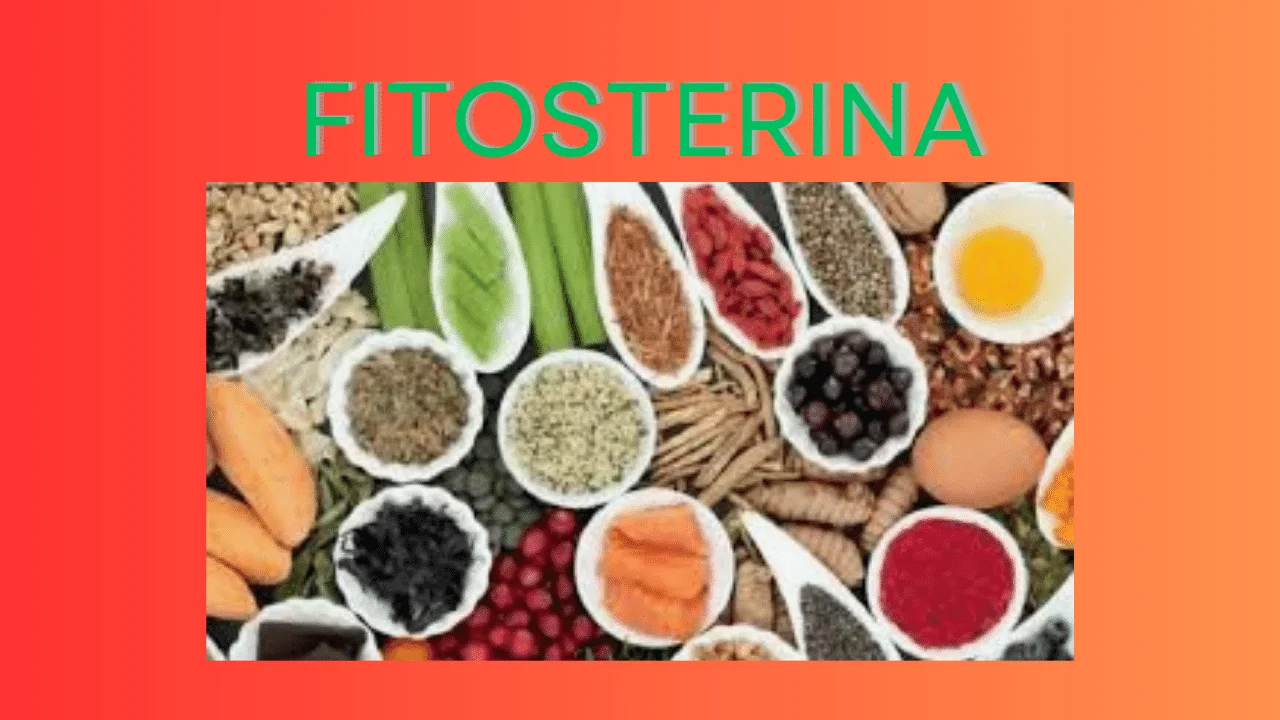Crucial components derived from plants, phytosterols (also called fitosterina) are structurally similar to human cholesterol. These substances, which are found mostly in nuts, seeds, vegetable oils, and whole grains, have many health benefits, the most important of which is that they lower cholesterol. Exploring their sources, benefits, and essential role in promoting health and preventing disease, this introductory article will delve into the multifaceted world of phytosterols.
What are PhytosterolsFitosterina?
Plant cell membranes contain a class of chemicals called phytosterols. Because of their structural similarity to cholesterol—a molecule essential for human cellular function—phytosterols offer a distinct advantage: they lower total cholesterol levels by blocking the digestive tract’s ability to absorb cholesterol. Those looking to control their cholesterol levels and improve their heart health can benefit from including phytosterols in their diet due to this unique quality.
Comprehensive Guide to Phytosterol Sources
Phytosterol-Rich Foods
Phytosterols are a great addition to many diets because they are present in so many different foods. Some of the most abundant natural resources are highlighted in this section.
Vegetable Oils
Phytosterols are abundant in vegetable oils. You can easily incorporate common oils like canola, sunflower, corn, and soybean oil into your diet because of their high phytosterol content.
Nuts and Seeds
In addition to providing protein, good fats, and other nutrients, nuts and seeds are rich in phytosterols. Some examples of very healthy food options are almonds, walnuts, and sunflower seeds.
Whole Grains
Brown rice, wheat germ, and bran are examples of whole grains that are rich in phytosterols. Adding these to your meals is a simple way to increase your intake of phytosterols.
Legumes
Phytosterols are an additional heart-healthy component found in beans, peas, and lentils, which are already nutrient-rich.
Phytosterol-Enriched Foods
More and more foods are being enhanced with phytosterols as people become more aware of the health benefits they provide. Included in this category are margarines, yogurts, and even certain drinks, giving buyers yet another easy option.
Impact of Phytosterols on Cholesterol and Heart Health
Cholesterol Reduction by Phytosterols
In order to lower cholesterol levels, phytosterols prevent the body from absorbing the fat. The result is a drop in blood levels of both total cholesterol and low-density lipoprotein (LDL), or “bad” cholesterol.
Cardiovascular Benefits
One study found that people who regularly consumed phytosterols had a lower risk of cardiovascular disease. A lower risk of heart blockages and healthier blood vessels are both contributed to by phytosterols, which lower cholesterol levels.
Recommendations for Daily Intake
A daily intake of 1.5 to 3 grams of phytosterols is recommended by health organizations as an effective means of lowering cholesterol levels. A healthy diet high in foods that contain phytosterols can help you achieve this goal.
Scientific Support and Studies
Dietary recommendations for preventing cardiovascular diseases should include phytosterols because of the many studies that support their positive effects on heart health.
Phytosterols’ Additional Health Advantages
Properties that Reduce Inflammation
Phytosterols are useful for more than just heart health; they also have anti-inflammatory qualities that are key in dealing with and preventing chronic inflammatory diseases.
Antioxidant Effects
In addition to their role as an antioxidant, phytosterols aid in the body’s defense against free radicals. Taking this step helps maintain good health and reduces the risk of developing certain diseases.
Potential in Chronic Disease Prevention
The health benefits of phytosterols go beyond just heart health; they may also lower the risk of autoimmune diseases, specific cancers, and other chronic conditions.
Phytosterol Supplements: Enhancing Your Diet
In addition to being found in foods naturally, phytosterols can also be taken orally as supplements. Incorporating phytosterol supplements into your regular health regimen is covered in this section.
Types of Phytosterol Supplements
You can find phytosterol supplements in a variety of forms, such as pills, fortified foods, and capsules. Supplements like these are great for people whose diets don’t provide enough phytosterols because they contain a concentrated dose of the compound.
Choosing the Right Supplement
It is wise to think about the kind and amount of phytosterols in a supplement before buying it. Many people prefer to buy products that have been independently tested for purity and strength.
Integration into Daily Routines
When adding phytosterol supplements to your daily routine, it’s important to keep your cholesterol levels and overall diet in mind. To better suit each patient’s unique health requirements, it is recommended to consult with a healthcare professional before beginning intake.
Phytosterol Safety and Side Effects
It is essential to understand the potential side effects of phytosterols in order to use them wisely, even though they are usually safe for most people.
Potential Side Effects
When taken in the recommended amounts, phytosterols pose no health risks to the average person. Nevertheless, side effects such as nausea, indigestion, or diarrhea may occur at high dosages.
Considerations for Specific Populations
Avoid taking phytosterol supplements if you have sitosterolemia, a rare genetic disorder that causes your body to absorb an excess of plant sterol. Before beginning a new supplement, women should talk to their doctors, especially if they are pregnant or nursing.
Phytosterols and Weight Management
Additional advantages of phytosterols may become apparent as we investigate their possible link to weight management.
Role in Weight Control
Phytosterols aren’t usually taken to help with weight loss, but they may indirectly aid with weight management due to their effects on metabolism and cholesterol.
Dietary Strategies for Phytosterol Intake
Making smart food choices and sticking to a meal plan are key to getting the most phytosterols in your diet.
Phytosterol-Enhancing Foods
It is easy to incorporate foods that are rich in phytosterols into your meals. Simple ways to increase phytosterol intake include using margarine that is enriched with phytosterols, adding ground flaxseed to cereal for breakfast, or opting for whole grain products.
Cooking with Phytosterol-rich Oils
Another effective way to enhance dietary intake is to cook with vegetable oils that are rich in phytosterols. You can enhance the flavor and reap the health benefits of oils like canola, sunflower, and olive oil.
Meal Planning for Optimal Intake
Consuming phytosterol-rich foods consistently throughout the day can aid in maintaining optimal cholesterol levels and general health, so it’s a good idea to plan your meals around them.
Research Insights
Whether phytosterols have any direct impact on weight loss is an open question in the current body of research. But their part in improving health as a whole can lead to better habits, which help with weight control.
FAQs
What exactly are phytosterols?
Phytosterols are plant-based compounds similar to cholesterol, which help reduce cholesterol absorption in the body.
Can phytosterols improve heart health?
Yes, by lowering LDL cholesterol levels, phytosterols can reduce the risk of heart disease.
How much phytosterols should I consume daily?
For effective cholesterol reduction, a daily intake of about 2 grams of phytosterols is recommended.
Are there any risks associated with phytosterol consumption?
For most people, phytosterols are safe, but high doses may cause gastrointestinal issues.
Can children consume phytosterols?
Yes, in moderate amounts, phytosterols are safe for children, but it’s best to consult with a healthcare provider first.
Conclusion
The many health benefits of phytosterols, also known as fitosterina, go far beyond their role in reducing cholesterol levels. Incorporating them into a well-rounded diet can significantly contribute to better general health and the prevention of numerous chronic diseases. Phytosterols have the ability to greatly influence public health, and this outlook is likely to improve as more is learned about their advantages and action mechanisms. Increasing consumption of phytosterols, whether from natural food sources or fortified products, is an easy and effective way to keep healthy and avoid illness.

Melody Roth, a seasoned blog writer with a passion for the delectable world of food, specializes in crafting mouth-watering articles on favorites like pizza and burgers. With years of experience under her belt, Melody serves up stories as tantalizing as the dishes she describes, making her an invaluable voice in the culinary blogging realm.

